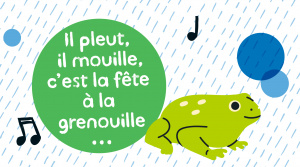Difference between revisions of "Language/French/Grammar/Impersonal-Verbs"
Jump to navigation
Jump to search
m (Quick edit) |
|||
| Line 22: | Line 22: | ||
<youtube>https://www.youtube.com/watch?v=kDdMLZEH45c</youtube> | <youtube>https://www.youtube.com/watch?v=kDdMLZEH45c</youtube> | ||
==Videos== | |||
===French Impersonal Verbs in French : Valoir, Falloir, Pleuvoir - YouTube=== | |||
<youtube>https://www.youtube.com/watch?v=9GNZwi1Dnzs</youtube> | |||
===French IMPERSONAL VERBS // French conjugation Course ...=== | |||
<youtube>https://www.youtube.com/watch?v=VX7P-HKMfus</youtube> | |||
Revision as of 17:21, 22 February 2023
Personal and Impersonal Verbs
Impersonal verbs
Most verbs are personal: they must be conjugated to different persons, such as:
- Example: "manger" (to eat): je mange (I eat), tu manges (you eat), etc.
However, some verbs are used impersonaly, meaning they only have one conjugation, the third person singular.
- Example: we can say "Il pleut". However, we cannot say "Je pleus".
- See also the impersonal form.
Video - French Impersonal Verbs Examples : Valoir, Falloir, Pleuvoir
Video - comptine pour enfants (nursery rhyme) : "Il pleut il mouille"
Children know how to use impersonal verbs like in this rhyme: "il pleut, il mouille, c'est la fête à la grenouille" (it's raining, it's wet, it's a frog party). 😄
We can use the traditional verb, “pleuvoir”, as well as the transitive verb, “mouiller”. The latter is used more colloquially, and it indicates greater intensity of rain.

